SaaS Development Company
At SoluLab, our SaaS development company builds safe cloud applications that satisfy end users' expectations and generate steady revenue for their owners using the most recent software development standards. Your business will benefit from our SaaS development cloud solutions in terms of lower expenses, smooth updates, and high adoption, all of which boost your revenue as a service provider.
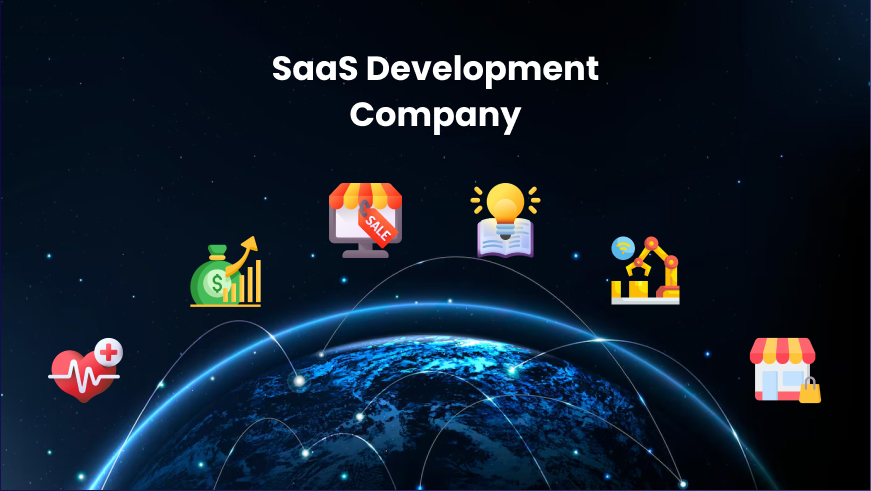

250+
Developers

150+ Software Products Delivered

10+ Total Years of Experience

50+ SaaS Development Solutions
Boost Your Business Revenues With Our SaaS
Development Services
At SoluLab, we offer comprehensive SaaS development services designed to elevate your business and increase your revenue. As a SaaS development agency, our expertise in end-to-end SaaS software design and development ensures that your innovative ideas are transformed into agile and robust applications.

SaaS App Development Consulting
Our consulting services provide extensive technical and strategic support to SaaS development companies for developing SaaS applications. We ensure your business objectives are met with precision. As one of the top SaaS development companies, we align our strategies with your goals for optimal results, helping you achieve long-term success.

Multi-Tenant SaaS Architecture
As a leading SaaS software development company, we assist tech vendors in planning and implementing sophisticated delivery models and management tools. Our approach ensures the creation of resilient multi-tenant SaaS applications. Trust us to design scalable solutions that align with the best practices of the biggest SaaS companies.

Third-Party Integration Services
SoluLab excels in connecting your SaaS app with third-party solutions by integrating external data sources. Our SaaS application development services include linking payment gateways and other essential services. Enhance your top SaaS company with the best app functionality with seamless third-party integrations, ensuring your app remains competitive.

Tech Migration and Re-Engineering
Leveraging our expertise in AI, IoT, blockchain, mobile, web, and cloud technologies, we migrate and re-engineer your existing SaaS applications. Being a SaaS development agency, our solutions incorporate the latest advancements to keep your app ahead of the curve. Trust our experts to ensure a seamless technology transition that enhances your app’s performance.

UI/UX Design
Our UI/UX design services include persona development, user journey mapping, wireframing, and usability testing. We create intuitive experiences and visually appealing interfaces, ensuring that the final product is both functional and aesthetically pleasing. Our designs adhere to the standards set by the biggest SaaS companies, ensuring user satisfaction.

Migration to SaaS
We transform your on-premise software into a robust, scalable subscription-based SaaS model. Our team handles all aspects of the migration process, including data transfer, application reconfiguration, and user training. Ensure a seamless transition with our expert SaaS application development services, enhancing scalability and flexibility for your business.

Security and Compliance Requirements
Our specialists address all security concerns, providing high-end security solutions to safeguard your SaaS applications. Stay compliant with industry standards and protect your business from threats. Our security measures ensure your SaaS application development services meet the highest standards of safety and reliability.

Optimizing SaaS Applications
At SoluLab, our team of Performance Optimization Specialists enhances your SaaS applications to improve performance, deliver top-notch user experiences, and reduce operational costs. We meticulously optimize every aspect of your SaaS solution to ensure optimal efficiency and customer satisfaction.

Support and Maintenance
Our dedicated development team focuses on adding new features, maintaining the product, and offering continuous support. We ensure the smooth operation of your SaaS solutions. Partner with a reliable SaaS software development company to receive ongoing product maintenance and support, keeping your app running efficiently.
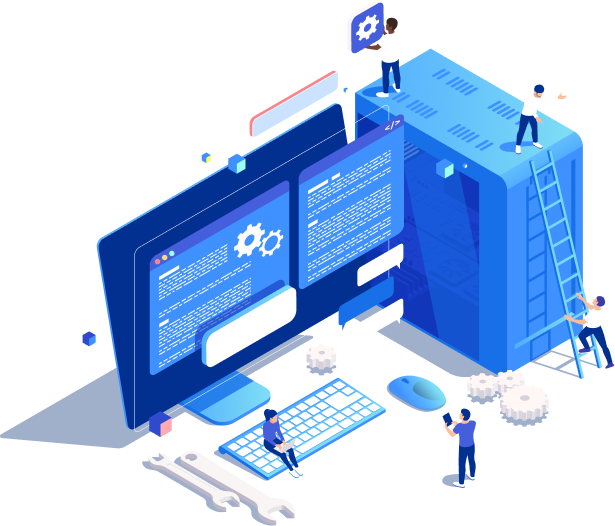
How Do SaaS Product Development Technologies Work?
SaaS product development technologies revolutionize how businesses deploy and manage software solutions. At SoluLab, we employ modern technologies to streamline the creation and deployment of SaaS applications. These technologies utilize cloud computing infrastructure to host applications centrally, allowing users to access them via the Internet without the need for local installation. This approach not only enhances scalability and flexibility but also reduces upfront costs for businesses by eliminating the need for extensive hardware investments.
Our development process integrates seamless third-party API integrations for enhanced functionality, ensuring that your SaaS application meets the diverse needs of your users. We prioritize security and compliance, implementing rigorous measures to protect your data and ensure regulatory adherence. Our team of experts also focuses on optimizing performance, and continuously refining your SaaS application to deliver exceptional user experiences. Partner with SoluLab to leverage advanced SaaS development technologies. Our customized solutions not only simplify your operations but also drive your business forward in the digital world, ensuring sustainable success and growth over the long term.
Types of SaaS Solutions We Develop
At SoluLab, we specialize in crafting diverse SaaS solutions tailored to meet the unique needs of modern businesses. Leveraging our expertise in innovative technologies and agile development practices, we empower different SaaS development companies across various sectors to streamline operations and drive growth. Explore our range of specialized SaaS solutions:

Accounting SaaS
Solutions
Our efficient and cost-effective accounting SaaS solutions are designed to streamline financial tasks such as invoicing, expense management, and financial reporting. By enhancing collaboration and providing real-time insights, we enable informed decision-making for business success.

Content Management System (CMS)
We develop robust CMS platforms on the SaaS model, facilitating seamless content generation and management. Our solutions improve workflow efficiency, simplify digital content management, and create engaging web experiences with minimal technical complexity.

Enterprise Resource Planning (ERP) SaaS
SoluLab excels in developing comprehensive ERP SaaS solutions that optimize processes across finance, logistics, manufacturing, and HR. Gain holistic visibility into business operations, streamline inventory management, and make data-driven decisions to drive organizational efficiency.

Project Management SaaS Solutions
Our intuitive project management SaaS solutions empower teams to plan, execute, and monitor projects effectively. Facilitating seamless collaboration and performance tracking, we help organizations achieve their project goals with enhanced productivity and innovation.

Communication SaaS Solutions
We design communication SaaS platforms that support real-time, remote collaboration across global teams. Enhance internal communication with features like messaging, video conferencing, and file-sharing capabilities, breaking geographical barriers for efficient teamwork.

HR SaaS Solutions
Transform your HR processes with our comprehensive SaaS solutions that manage employee data from recruitment to retirement. Automate administrative tasks, enhance employee engagement and modernize HR operations to foster a productive and motivated workforce.
Our Diverse Industry Reach
As a leading SaaS development agency, SoluLab caters to diverse industries, delivering innovative solutions that transform businesses. Our expertise as a trusted SaaS development company enables us to provide tailored SaaS applications that meet industry-specific challenges and requirements. Explore how we empower businesses across various sectors:

Enhance patient care and operational efficiency with HIPAA-compliant SaaS solutions for healthcare providers and telemedicine platforms.

Finance
Streamline financial processes and ensure regulatory compliance with secure and scalable accounting and financial management SaaS applications.

E-commerce
Optimize e-commerce operations with customizable SaaS platforms that support inventory management, order processing, and customer relationship management.

Transform learning experiences with intuitive learning management systems (LMS) and educational SaaS solutions that support remote learning and collaboration.

Improve supply chain visibility and operational efficiency with ERP SaaS solutions tailored for manufacturing processes and inventory control.

Enhance customer engagement and streamline operations with retail-focused SaaS applications that integrate POS systems, inventory management, and e-commerce capabilities.
Benefits of Choosing Our SaaS
Development Services
Partnering with SoluLab for your SaaS development needs ensures a range of benefits tailored to drive your business forward:

Expertise in SaaS Development
SoluLab brings extensive knowledge as a leading SaaS development company, delivering high-quality applications that align precisely with your business objectives and industry standards.

Customized Solutions
Our SaaS applications are meticulously crafted to meet your specific needs, addressing unique challenges with tailored features and functionalities that enhance operational efficiency.

Agile Development Approach
Embracing agile methodologies, we facilitate rapid development cycles and seamless adaptation to evolving requirements. This approach ensures continuous improvement and timely delivery of robust SaaS solutions.

Seamless Integration
SoluLab’s SaaS solutions seamlessly integrate with your existing infrastructure and third-party applications. This integration enhances overall functionality, user experience, and operational synergy across platforms.

Scalability and Flexibility
Designed for scalability, our SaaS architectures empower your business to grow effortlessly. Whether accommodating increased user demand or expanding into new markets, our solutions scale seamlessly to support your growth trajectory.

Cost-Effective Solutions
Benefit from cost-effective SaaS development services that optimize resources and minimize overhead costs. Our solutions are engineered to deliver superior performance and ROI, ensuring efficient utilization of your investment.

Enhanced Security
Security is paramount in every SaaS solution we develop. SoluLab implements robust security measures throughout the development lifecycle to safeguard your data, ensuring compliance with stringent industry standards.

Continuous Support and Maintenance
We provide comprehensive support and maintenance services to keep your SaaS applications operating at peak performance. Our proactive approach includes regular updates, monitoring, and troubleshooting to minimize downtime and maximize efficiency.

Customer-Centric Approach
At SoluLab, we prioritize your satisfaction. Our customer-centric approach fosters transparent communication, collaborative partnership, and a deep understanding of your business goals, ensuring we deliver solutions that exceed your expectations.
Request a Free Consultation
Are you curious about how our SaaS development services can benefit your business? Request a free consultation with our experts and explore customized solutions designed to meet your unique needs. Get in touch with SoluLab today!
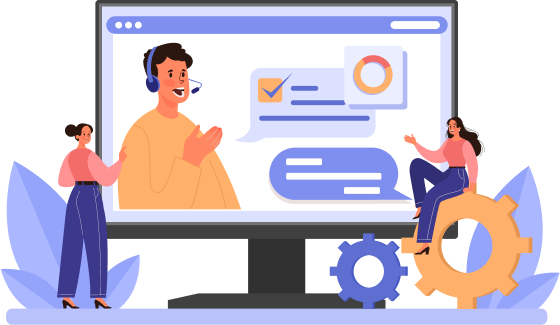
Our SaaS Development Technology Stack

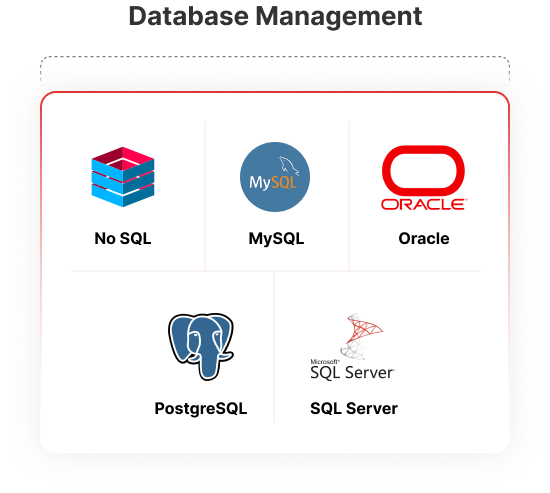
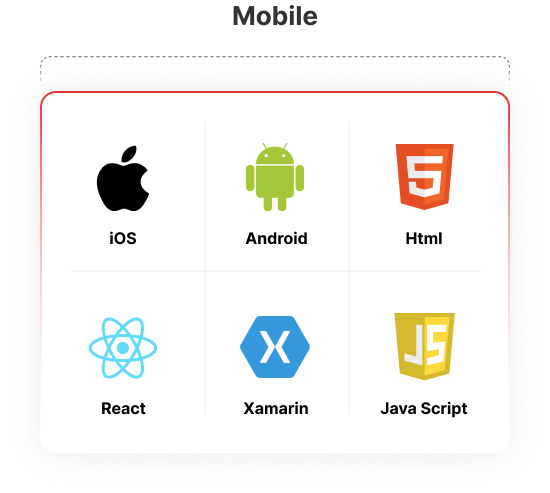
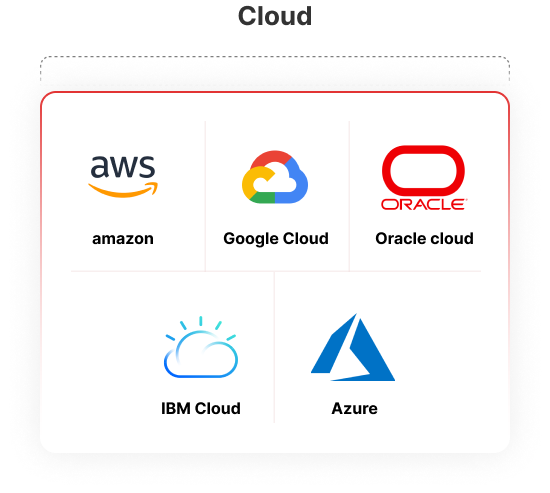
SaaS Development Use Cases
As a leading SaaS company, SoluLab provides top-notch SaaS development services tailored to meet the diverse needs of businesses across various industries. Our expertise in SaaS development enables us to create scalable, secure, and user-friendly applications that drive business growth and innovation. Here are some common use cases where our SaaS development solutions have proven to be invaluable:

Customer Relationship Management (CRM)
Our SaaS development services can help you build powerful CRM platforms that streamline customer interactions, manage sales pipelines, and improve customer service. These solutions enable businesses to track customer behavior, manage leads, and enhance customer retention strategies.

We develop comprehensive ERP systems that integrate various business processes, such as inventory management, human resources, finance, and procurement. Our ERP solutions help businesses achieve operational efficiency, reduce costs, and improve decision-making.

Project Management
Our project management SaaS applications are designed to facilitate collaboration, task tracking, and resource management. These tools help teams stay organized, meet deadlines, and enhance productivity, making project management more efficient and effective.

SoluLab's SaaS development services extend to creating robust e-commerce platforms that support online sales, inventory management, and customer service. Our solutions are designed to provide seamless shopping experiences, secure transactions, and scalability to handle growing customer bases.

Human Resource Management (HRM)
We offer SaaS solutions for HRM that simplify employee onboarding, payroll processing, performance tracking, and benefits administration. These tools help HR departments manage their workforce more effectively and enhance employee satisfaction.

Financial Management
Our SaaS financial management solutions offer tools for budgeting, forecasting, and financial reporting. These applications provide businesses with real-time insights into their financial health, helping them make informed decisions and maintain financial stability.

Collaboration Tools
We develop collaboration tools that enhance communication and teamwork within organizations. These include messaging apps, video conferencing solutions, and document-sharing platforms that facilitate real-time collaboration and information sharing.

Marketing Automation
Our SaaS marketing automation platforms enable businesses to streamline their marketing efforts, track campaign performance, and nurture leads. These solutions help in executing effective marketing strategies, generating higher ROI, and improving customer engagement.

Healthcare Management
SoluLab's SaaS development services also cater to the healthcare sector by providing solutions for patient management, electronic health records (EHR), and telemedicine. These tools help healthcare providers enhance patient care, improve operational efficiency, and ensure compliance with industry regulations.
Our SaaS Development Projects
Borrowland
- Crypto Borrowing & Lending Platform
Many financial firms nowadays are adapting digital ways to facilitate traditional services, Borrowland is no exception here. The platform is transforming the good old lending-borrowing landscape with blockchain technology to ensure worldwide users can easily borrow, lend, swap, deposit, withdraw, and
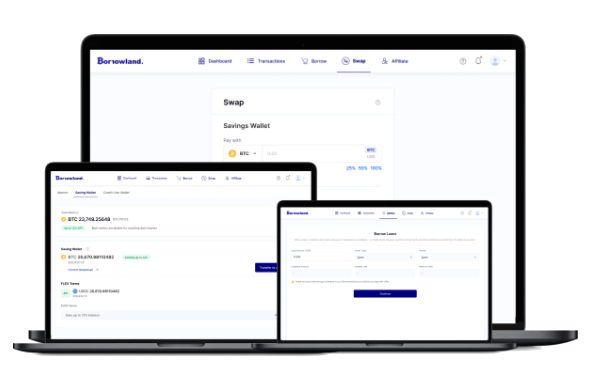
DLCC
- Leading the movement from TradFi to DeFi
DLCC is a revolution in the finance sector. The platform is transforming the traditional finance landscape with decentralized finance to facilitate automated crypto trading, lending, and borrowing without geographic restrictions at negotiable fees and interest rates with enhanced security and transparency.
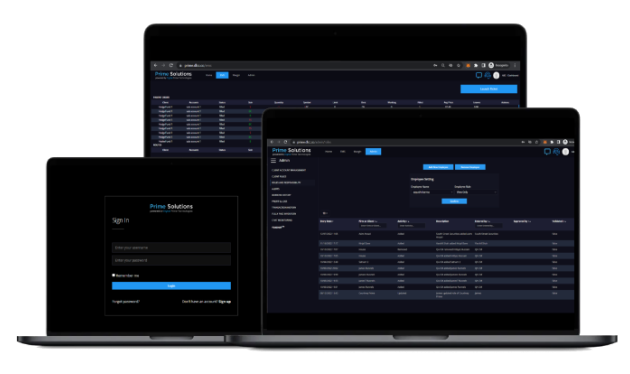
DOCTRACE
- Safe Management of documents
The professionals at the Texas-based business DocTrace provide dependable engineering solutions to the construction industry and the general public. Due to the extensive document exchanges inherent in this procedure, the company set out to create a safe and user-friendly document management system for
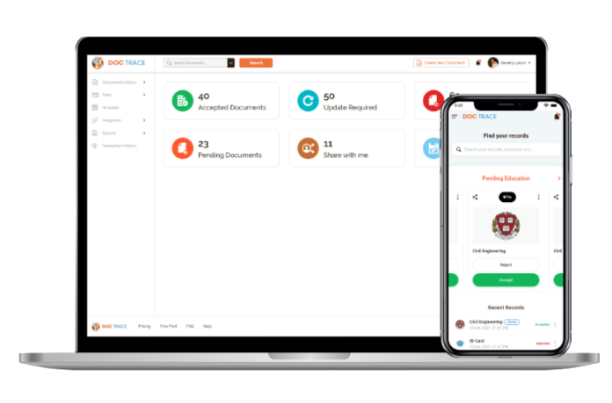
The Roadmap to Our SaaS Development Success
At SoluLab, our SaaS development services are driven by a well-defined and strategic roadmap that ensures the delivery of high-quality, innovative, and scalable solutions. Our roadmap to success is built on a series of meticulously planned and executed stages, each designed to maximize the value we bring to our clients. Here’s a closer look at the key phases in our SaaS development process:

Discovery and Planning
The journey begins with a comprehensive discovery phase where we understand your business needs, goals, and challenges. We conduct market research, competitor analysis, and stakeholder interviews to gather insights. This information helps us define the project scope, establish clear objectives, and create a detailed project plan.

Requirements Gathering
In this phase, we work closely with you to identify and document the specific requirements of your SaaS application. We prioritize features, functionalities, and integrations that will provide the most value. Our team ensures that all technical and business requirements are clearly defined and understood.

Prototyping and Design
Our design team creates interactive prototypes and wireframes to visualize the user interface and user experience. We focus on creating intuitive, user-friendly designs that enhance user engagement and satisfaction. This phase involves iterative feedback and refinement to ensure the final design aligns with your vision.

Architecture and Technology Selection
We carefully select the most suitable technology stack and architectural frameworks for your SaaS application. Our choices are based on factors such as scalability, security, performance, and future growth. This phase ensures that the foundation of your SaaS product is robust and capable of handling your business requirements.

Agile Development
Using agile development methodologies, our development team starts building your SaaS application in iterative cycles or sprints. This approach allows us to deliver functional modules quickly, gather feedback, and make necessary adjustments. Continuous integration and testing ensure that each component meets our high-quality standards.

Quality Assurance and Testing
Our QA team conducts rigorous testing to identify and resolve any issues. We perform unit testing, performance testing, and user acceptance testing (UAT) to ensure your SaaS application is bug-free, secure, and performs optimally. Our goal is to deliver a reliable and high-performing product.
Why Choose SoluLab As Your SaaS
Development Company?
Selecting the right partner for your SaaS development needs is crucial to the success of your project. At SoluLab, we stand out as a leading SaaS development company, offering unparalleled expertise, innovation, and commitment to delivering exceptional results. Here are compelling reasons why you should choose SoluLab for your SaaS development services:

Expertise and Experience

Custom Solutions

Cost Reduction

Streamlined Focus and Profitability

Quick Implementation

More Secure
What Our Clients Have to Say for Us
“I must say that SoluLab's technical knowledge and project management skills have amazed me. A must-have for any blockchain project. It’s a big time saver when compared to the cost it would take to handle this manually.”
Adil Abbas
Founder, Igniter100
“They have continued to give exceptional service and support throughout the development and have always worked to satisfy our diverse demands as the project has advanced. SoluLab’s White label real estate tokenization has revolutionized my investment opportunities. It's efficient, secure, and offers instant liquidity. Highly recommended”
Scott Miller
Data Architect, Padgett Law Group
“I had heard a lot about SoluLab when it comes to the blockchain, but never thought they could do wonders while integrating real estate with blockchain. I am very impressed. We were able to reach out to hundreds of past customers and solicit reviews we certainly would not have gotten otherwise ”
Shaily Srivastava
Co-founder and CEO, Acreage
Frequently Asked Questions
A SaaS model delivers software applications over the internet on a subscription basis. Users access the software via a web browser, eliminating the need for installations or maintenance. The SaaS provider manages all aspects of the application, including updates, security, and infrastructure, ensuring a seamless user experience.
Custom SaaS solutions are tailored to meet the specific needs of your business. They offer flexibility, scalability, and improved efficiency by aligning with your unique workflows and requirements. Custom SaaS applications can also provide a competitive advantage by incorporating features that differentiate your business from others..
The cost of custom SaaS development varies depending on the complexity of the project, the number of features, and the level of customization required. At SoluLab, we provide detailed quotes based on your specific needs and project scope. Contact us for a personalized estimate.
Yes, SaaS solutions can be highly secure. Reputable SaaS providers like SoluLab implement robust security measures, including encryption, regular security updates, and compliance with industry standards. Our security practices ensure that your data is protected against breaches and unauthorized access.
To get started with a custom SaaS project, reach out to us at SoluLab. We’ll schedule a consultation to understand your requirements and business goals. From there, we'll develop a tailored plan and provide a comprehensive proposal for your SaaS solution.
The development timeline for a custom SaaS product depends on the project's complexity and scope. Typically, a basic SaaS application can take a few months to develop, while more complex solutions may require six months or longer. At SoluLab, we follow an agile development approach to ensure timely delivery and flexibility.
Absolutely! One of the key advantages of SaaS solutions is their flexibility and scalability. At SoluLab, we offer ongoing support and maintenance, allowing you to make updates and add new features as your business evolves. Our agile approach ensures that your SaaS solution can adapt to changing needs.
SaaS solutions are versatile and can benefit a wide range of industries, including healthcare, finance, education, e-commerce, manufacturing, and more. Any industry that requires scalable, cost-effective software to streamline operations, enhance collaboration, or manage data can leverage SaaS solutions.
SoluLab is a leading SaaS development company with extensive experience in creating custom solutions tailored to your business needs. We offer a customer-centric approach, agile development methodologies, and a commitment to delivering high-quality, secure, and scalable SaaS applications. Partner with us to drive your business success with innovative SaaS solutions.

